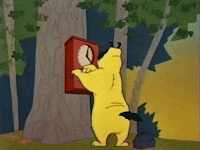We reuse and repurpose a lot of stuff, too. That comes out of, well, being poor. Even though I’m on a much better footing these days, financially, I still try to reuse things. We never broke the habit of using those spaghetti sauce mason jars as glasses. Half our Tupperware is take-out containers. And I still look at frozen pizza boxes as potential tanks.
What’s odd, though, is a certain subset of folks who’ll mock you for doing this with your writing.
I’ve brought up many, many times the need to cut manuscripts. We write so much stuff that gets trimmed away. Clever bits of descriptions. Cool dialogue. Sometimes whole scenes, subplots, or even whole characters. When it comes time to hone and focus that first draft, all these things can fall under the editorial knife.
Now, weird as this may sound—like I said, for most of you this is going to sound bizarre, but—some people think this cut material’s gone for good. It’s been deleted. Even if some record still exists, it’s unusable now. Toxic. Radioactive. It’s somehow been tainted forever.
I think a lot of this comes from people who lean a little too heavily on the art side of writing. Oddly enough… the ones who don’t write that much. They get a little too focused on the idea and the craft and the ART of it. I put these words together in this way for this story. I didn’t use them like that or like that, and so pulling them out and putting them somewhere else would just be wrong. It’s not what I first intended. It’s not what those phrases were created to do.
If you happen to be the one out of four who thinks this… sorry. It just isn’t true. In any way. Just in case my tone wasn’t carrying through.
Of course I can repurpose material. Artists have done it throughout history. We jot down notes for one thing and end up using them for another. We cut from that and then repurpose it for this. Exchanges of dialogue. Neat ways to describe something. Maybe a whole scene of morning-after awkwardness or a supporting character who got nixed for space.
Granted, none of this is going to slide right in without a bit of work and some tweaks. I’m probably going to have to change a few proper nouns, and possibly a few personal pronouns, too. Maybe an adjective or three. That’s just the nature of such things. But it’s still absolutely fine to use it.
And honestly, because it’s older stuff I didn’t use before… I may have improved since I first wrote it (hopefully I have). That was a great bit back then, but y’know, if I just did this it’d be fantastic. Or maybe he seemed like a good character for back then, but now I realize this should all really be centered around her.
I’ve got a book coming out later this summer/early fall called Terminus(that’s probably what we’re calling it), and it’s got a discussion between two characters I’ve been trying to use for almost eight years now. Seriously. I had to cut it from another book, but it’s got some great character stuff and I’ve always wanted to use it. Terminus finally gave me a great place where it could fit. And, yeah, it needed some adjustment to fit in this story with these characters at this point in the overall story. But it’s still 80-85% the same and I think folks are going to love it when they read it.
Still not convinced? Are you one of those one out of four who’s ready to pop down to the comments and point out I’m one of those lazy hacks who barely qualifies as a real writer?
 How about Ray Bradbury? Is he a lazy hack? Most of Fahrenheit 451 is recycled ideas, after all. Bradbury had already used the firemen (the book burning ones) in a bunch of different short stories. They even show up in The Martian Chronicles. He’d also done longer stories about book burning and corpse-burning (seriously). The spider-like Mechanical Hound is from an old short story he’d never finished. There it‘s a law-enforcement tool used by sheriffs and police. He lifted the entire description, almost word for word, and dropped it into 451, along with some dialogue about it. Heck, the whole book is an expanded version of his short story “The Fireman” which he expanded into a novella and then expanded again into a full book.
How about Ray Bradbury? Is he a lazy hack? Most of Fahrenheit 451 is recycled ideas, after all. Bradbury had already used the firemen (the book burning ones) in a bunch of different short stories. They even show up in The Martian Chronicles. He’d also done longer stories about book burning and corpse-burning (seriously). The spider-like Mechanical Hound is from an old short story he’d never finished. There it‘s a law-enforcement tool used by sheriffs and police. He lifted the entire description, almost word for word, and dropped it into 451, along with some dialogue about it. Heck, the whole book is an expanded version of his short story “The Fireman” which he expanded into a novella and then expanded again into a full book.
And he’s not alone. Lots of writers have files of material they had to cut. And they’re always trying to find that material a new home.
Y’see, Timmy, yeah, writing is an art. But like every kind of art, the “how I do it” is entirely up to me. My manuscript might be pristine and pure and new. It might make Frankenstein look like somebody with a small appendectomy scar. But honestly, none of that matters. The only thing that matters is the manuscript I have at the end. Does it flow? Are the characters believable? Is the plot interesting? Does the dialogue ring true?
Then it’s good. And that’s all that matters.
 Next time… okay, to be terribly honest, next time is the day before my birthday. One of those milestone, “we should make note of this” birthdays. What I’m saying is, I’m probably going to be drunk. Which means I’ll end up talking about Godzilla or something.
Next time… okay, to be terribly honest, next time is the day before my birthday. One of those milestone, “we should make note of this” birthdays. What I’m saying is, I’m probably going to be drunk. Which means I’ll end up talking about Godzilla or something.
Until then… go write.













